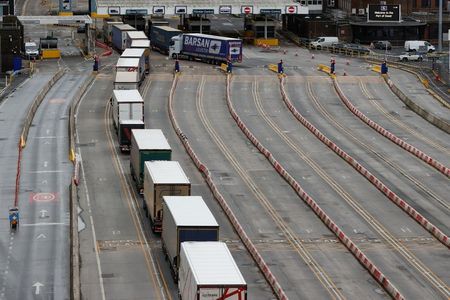Not going anywhere: Trucks full of aid for Ukraine stuck in Britain due to Brexit red tape

Frustrated charity workers have said that items they are trying to get to war-torn Ukraine are stuck at the Port of Dover due to complex post-Brexit paperwork and custom checks.
Agnieszka Lokaj, who runs the Lewisham Polish Centre in south London, told Politics Home that her charity had up to five tonnes of donations that is currently not able to leave the UK as there is confusion over the required paperwork.
Lokaj reportedly said that three trucks full of donations that were given to her charity are currently stuck in Dover. In fact, drivers were initially sent away by custom officials, she said.
The confusion centred around the fact the items are donations and not meant to be re-sold, with officials therefor asking for official paperwork that proves the items will not be sold once they have crossed into the EU.
“The donations to us are growing, but we are not exporting,” she told PoliticsHome.
“I don’t want to send drivers to the border where they will be stuck for several days. It doesn’t make sense to spend so much time and money dealing with the bureaucracy,” she said.
Rules since 1 January
From 1 January, importers must make a full customs declaration on goods entering the UK from the EU or other countries, and vice versa.
Traders will no longer be able to delay completing full import customs declarations for up to 175 days, a measure that was introduced to cope with the disruption of Brexit.
Richard Harrow, the chief executive of the British Frozen Food Federation, warned earlier this year that the new border controls on animal and plant products from the EU could see major delays at ports in the New Year.
“Whilst the new UK rules will be introduced in stages, we are concerned that not enough planning has been done to ensure the new requirements are understood by everyone in the food supply chain,” Harrow said.
A good example of this is a new HMRC process called Goods Vehicle Management System (GVMS).
The system is designed to enable HMRC to keep a track of loads containing meat and plant products in fast-moving roll-on-roll off ports such as Dover.
“The system requires haulage companies to pre-lodge the arrival of a load to the UK before it departs from the EU port of embarkation.